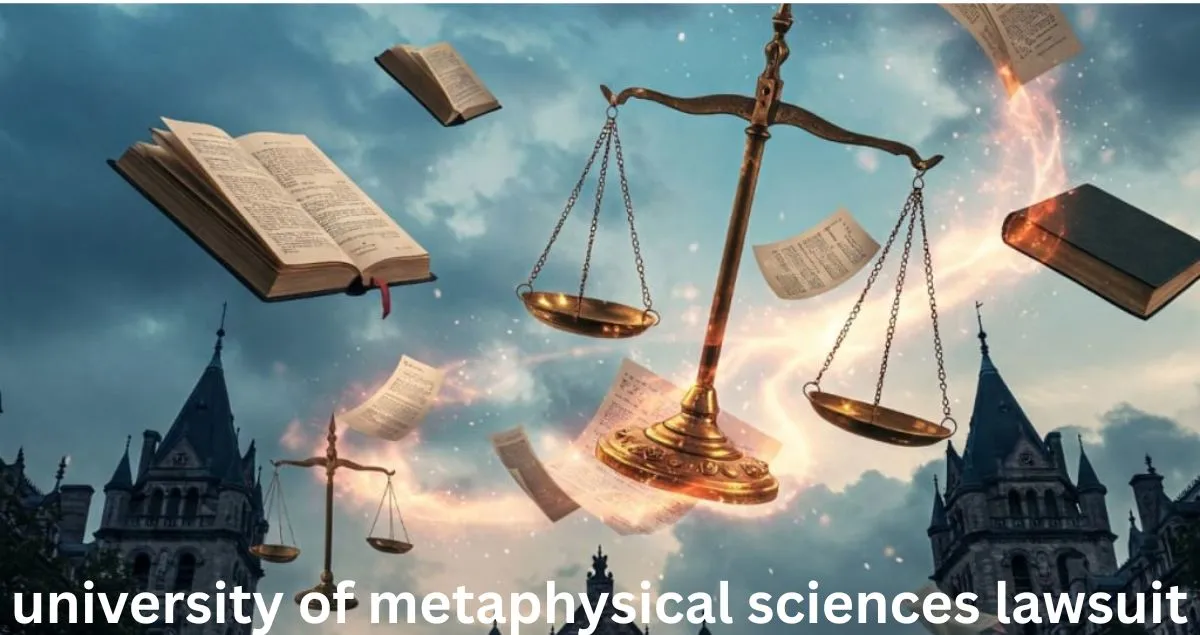Former competitor International Metaphysical Ministry (IMM) alleged trademark misuse, false advertising, and breach of a 2019 settlement. IMM claimed UMS wrongly used its name in Google ads to divert students.
UMS defended itself by:
- Denying misuse of IMM’s name.
- Showing Google ad reports and negative keyword filters.
- Characterizing the lawsuit as predatory — a tactic used repeatedly to suppress competition.
2. How long has this conflict lasted?
| Year | Event |
| 2017 | IMM filed first trademark infringement suit |
| 2019 | Parties settled that case |
| 2021 | IMM launched a new lawsuit, alleging ad-related misconduct |
| Feb–May 2025 | Pre-trial actions foreshadowed a June 2025 court date |
| May 12 2025 | Parties agreed to dismiss the lawsuit without trial |
UMS has never lost any of these suits or paid damages.
3. What’s the latest update on the University of Metaphysical Sciences lawsuit?
On May 12, 2025, UMS and IMM agreed to drop the lawsuit before trial. The scheduled trial for June 16–20 was canceled, ending legal uncertainty. No verdict was reached, leaving no official determination of wrongdoing. UMS statements called it a vindication. Critics remain skeptical, speculating on undisclosed terms.
4. What fueled the dispute beyond court filings?
UMS reported hostile online campaigns:
- Fake or spam articles in search results.
- Negative search suggestions.
- SEO manipulation by unidentified actors
They launched DMCA takedowns, monitored Google results, and published their side online.
5. Why it matters: broader implications
- Niche education: The case highlights the tension between spiritual/exempt institutions and trademark law.
- Fair competition: UMS paints this as predatory litigation meant to suppress market share (spending ~$1.5–2M).
- Legal precedent: The settlement may shape future ad and trademark disputes in alternative education.
6. What’s next for UMS and its students?
- Operations remain normal: UMS continues offering online programs and issuing degrees. Accreditation through AADP, AAMA, and BBB remains intact.
- Reputation management: Ongoing efforts to remove fake content and reassure students are underway.
- Future legal steps: UMS has hinted it may pursue antitrust claims or countersue if IMM files again.
7. What does Reddit say?
Redditors focus on value and legitimacy of metaphysical studies, less on legal aspects:
“The staff are super friendly… Each course … includes multiple choice and written exam challenged by these exams”
“University of Metaphysical Sciences covers just about everything metaphysical.”
Critics say degrees lack federal accreditation and are mainly useful in spiritual contexts. Some call it non-diploma-mill but caution against expecting secular career uses.
8. Final thoughts
The University of Metaphysical Sciences lawsuit was a high-stakes trademark and ad dispute with repeated legal action and online smearing. It ended in May 2025 without trial and without a verdict. UMS continues operations and remains vocal about fighting predatory tactics. The legal saga may set future precedent for metaphysical education providers and trademark use in spiritual niches.
Frequently Asked Questions
Q1: What was the University of Metaphysical Sciences lawsuit about?
It centered on allegations by IMM concerning trademark infringement via Google ads, breach of settlement terms, and defamation campaigns.
Q2: What is the latest update on the lawsuit?
The case was dismissed by mutual consent on May 12, 2025. Trial was canceled for June 16–20, 2025.
Q3: Did UMS lose or settle the lawsuit?
No. The dismissal occurred without admission of guilt or payout. UMS reports no losses or settlements
Q4: Will the lawsuit affect current UMS students?
No. Courses, accreditation, and operations continue uninterrupted.
Q5: Where can I find more information or updates?
Check UMS’s official website, Medium updates by Christine Breese, and court filings in Northern District of California.
